I STARTED PLAYING Games Workshop’s Warhammer 40K in 1987, when it first arrived in the United States. While for the most part, it’s been a lot of fun, I’m done with the game. I don’t see myself ever playing again.
Why not? Because 9th Edition 40K is exhausting.
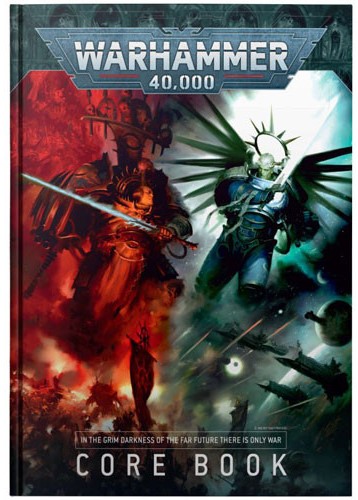
It’s not so much the core rules themselves, though they can be overly complicated and fiddly, especially when it comes to close combat (but then, that’s always been the case). I still don’t know why we need a separate Psychic phase, but that’s easily avoided: only two of my six armies have Psykers.
Codex: Crazycakes
No, it’s more to do with the codices. Some armies have a bewildering plethora of units: regular Adeptus Astartes, what we used to call “vanilla” Space Marines, have over 100 available.
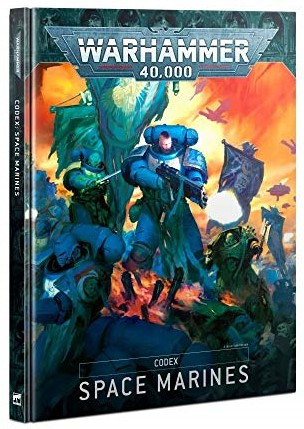
Some units are sub-optimal (who decided that Space Marine Scouts should be an Elite choice?). Some are redundant (do we really need that many varieties of Dreadnoughts?). Some are just…odd (Space Marines who float in the air and shoot autocannons—what the actual hell is up with Suppressor Squads?).

But that’s not the big issue with Codex: Space Marines.
What is, is that most of these units have unique rules, and each codex has faction-wide special rules, some of which can be quite extensive. Using Space Marines as an example again, the Angels of Death rule is actually several rules bound together: And They Shall Know No Fear; Bolter Discipline; Combat Doctrines; and Shock Assault.
Continuing with Space Marines, there are also rules for Combat Squads, Death From Above, Concealed Positions, Outflank, and Teleport Strike. Individually, none of these rules are difficult, it’s just that there are a lot of them, and they’re applicable at different times during the game, under certain circumstances.
If you don’t play that often, it can be a lot to keep track of all these rules, what they do, and when can you use them. I can’t tell you how many times I’ve forgotten one of them in the heat of the moment.
While the Space Marine rules are fairly straightforward, some rules from other factions seem needlessly complicated. I didn’t think I would need a a biology degree to field the latest Tyranids, or be skilled in computer programming to run 9e Necrons, but I’m starting to think that I should have paid more attention to those subjects in school.
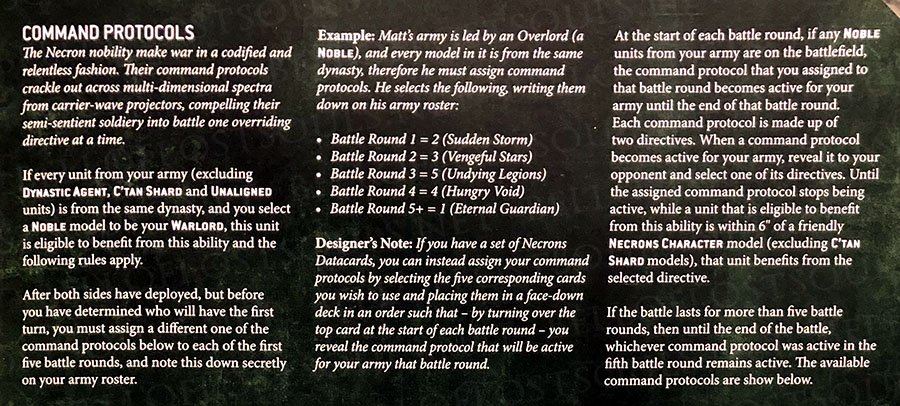
On top of the core rules and the faction rules are the Warlord Traits and Relics, and depending on the army, there might be various psychic powers and other abilities. Codex: Space Marines has two sets of Psyker abilities, plus six different Litanies of Battle for Chaplains.
I’ve never used Crusade rules, but there seem to be a ton of them: Agendas, Requisitions, Battle Traits, etc. And then there are Stratagems, many of which only apply to specific units.
(Side comment: While Stratagems can be very characterful and fun to use, and sometimes are crucial to winning, I firmly believe that they need to be picked out and studied ahead of time. If, in the midst of a game, you’re flipping through your codex, looking for the right one for what’s happening right then and there, you’re probably toast, and you just don’t know it yet.)
The Game Is Afoot, and It’s Running Faster Than I Can Chase It
There’s also how often the game itself changes. Sometimes a book will come out, and right away—within weeks of its release—GW will issue errata for it. Every few months, new FAQs are posted. Every year, points and Power Ratings are updated.
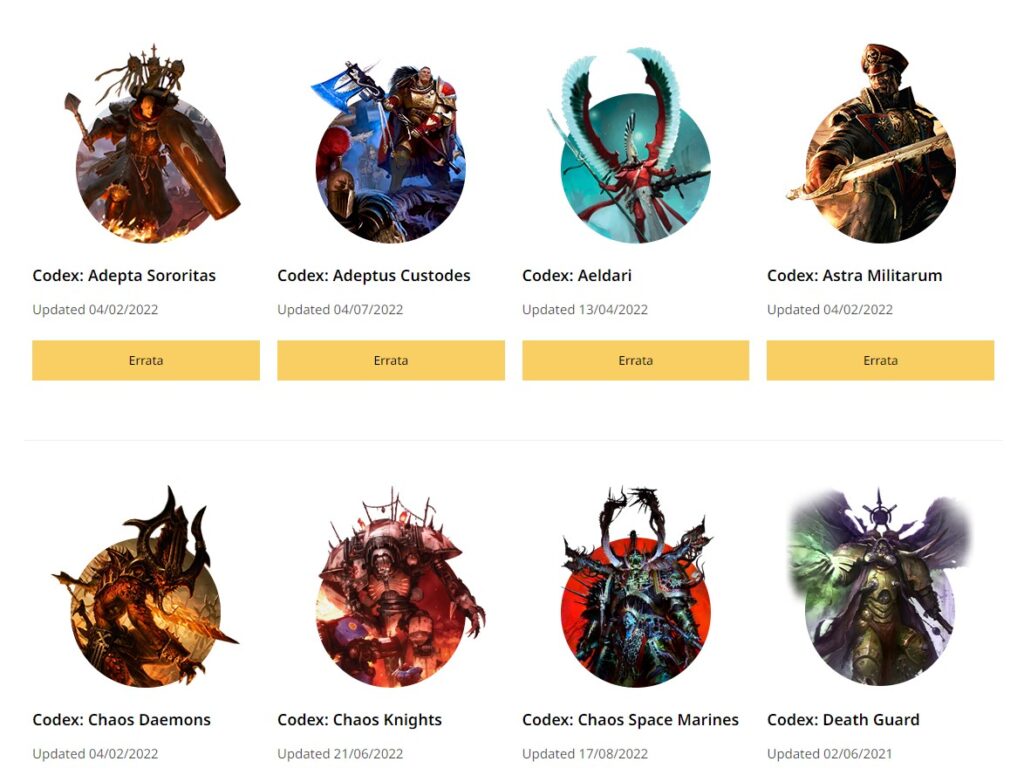
If you’re a regular gamer who appreciates all the fine tuning and can keep up with it, good for you. But because I don’t play that often (my last game was in January of this year), it’s a hassle to catch up with what’s changed for each of my armies.
On top of all that is the fact that every three to four years, GW puts out a new edition of the game, requiring me to buy a new and very thick core rulebook that I need to study. I only need the rules that make up 1/3 of the book, not the fluff that makes up the rest, but buying those separately is never an option.
Sometimes, the changes from one edition to the next are huge: First to Second; Second to Third; Seventh to Eighth (if you were around for those). Most of the time, the changes are smaller, which isn’t always helpful. All the way into Seventh Edition, I would sometimes misremember a rule, thinking of how it was done in Fourth or Fifth.
In addition to buying the new and very expensive core rulebook—again—I need to buy new codices for each army—again. I started out in 1987 with Space Marines, so over the years, I’ve bought eight Marine books. Since they went to hardcover, they haven’t been cheap. For Ninth Edition, I’ve spent $345 (not counting shipping) on books: $70 for the core rules, and $55 each for five of my six armies.
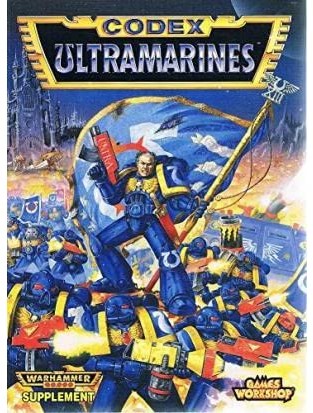
Stop The Ride, I’m Getting Off
It was when I saw the news that Codex: Chaos Daemons was coming out, for my sixth army, that I fully realized how fatigued I am with the game. Instead of being excited about the new book, I had the same feeling as when someone at my job drops a huge pile of paperwork on my desk.
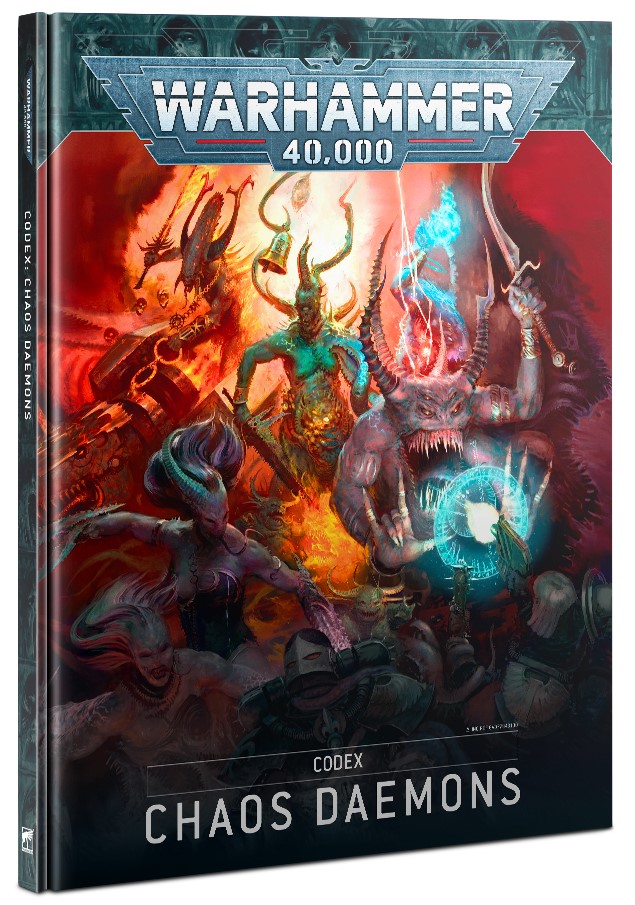
My exact thoughts were, Ugh—I can’t believe I’m gonna have to wade through all this. And for what? I wondered. I could go to the hassle of reading the book, learning the new rules, adjusting my existing army list, and picking out the Stratagems, but how often would I actually use all this before a new edition and a new codex comes along?
The Future is Grim and Dark
Despite my ennui and disinterest in 40K, I didn’t want to get rid of the hundreds of figures, and dozens of vehicles and monsters, that I own. I’m a mediocre painter on my best day (and my best days are far behind me), but I’m still fond of my collection.
Nor did I want to shut down this site. I don’t update it as often as I would like: my side career as a novelist eats up a lot of my writing time, and running a 1e AD&D campaign eats up a lot of my gaming time. But I still enjoy posting things here and on the Facebook page. What to do?
A possible answer came to me when I remembered a battle report that fellow gamer and author Gareth Topping wrote up for the second iteration of the Jungle, shortly before it crashed. The batrep was between his Necrons and his friend Ian’s Adepta Sororitas, but it didn’t use regular 40K rules. Instead, it used a system called “Grimdark Future.” So, I checked it out.
And now, I’ll never go back to 40K. I’ll tell you more about it next time.

Kenton Kilgore writes killer SF/F for young adults and adults who are still young. The Fighting Tigers of Veda appear in his latest novel, Stray Cats, which you can find here.

Check him out on kentonkilgore.com, and follow Kenton on Facebook for frequent posts on sci-fi, fantasy, and other speculative fiction. You can also catch him on Instagram, and find his books in softcover and for Kindle on Amazon.
